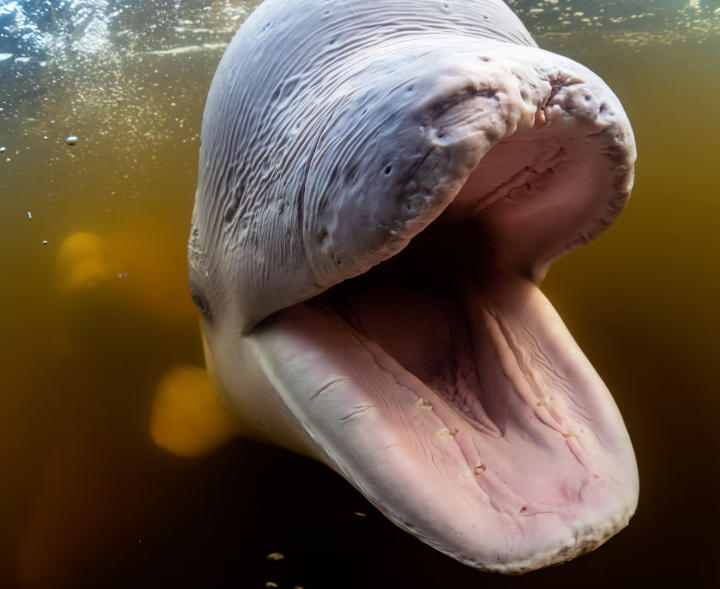
1. Why Scientists and Tourists Flock to Churchill’s Beluga Whales
Churchill, Canada — Scientists are closely studying the beluga whale populations off the coast of Hudson Bay, one of the largest gatherings of belugas in the world. This area, near Churchill, Manitoba, is a key location for both research and tourism, as the whales are known for their sociable and curious behavior, often interacting with boats and kayaks. Researchers are particularly interested in understanding the social structures and behaviors of these whales, which are more interactive with humans than belugas in other regions.
The beluga population in Hudson Bay provides a critical opportunity to study how healthy marine mammal populations thrive, offering insights into conservation efforts. While tourists flock to witness this spectacle, the scientific community emphasizes the need for ongoing protection of these habitats, particularly as climate change and other environmental pressures threaten marine ecosystems.
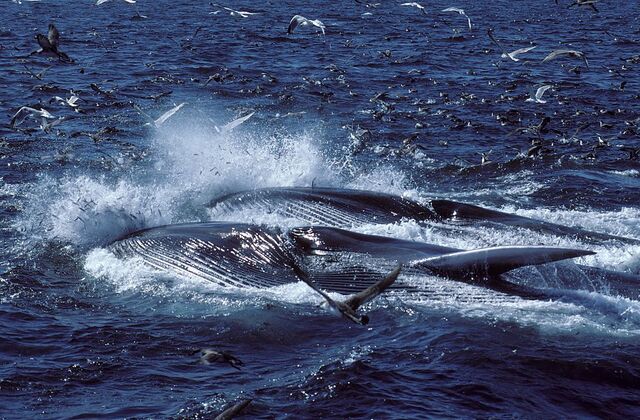
2. Can Iceland’s Pirate Party Save Whales?
Reykjavik, Iceland —The esoteric but popular, Pirate Party of Iceland is spearheading efforts to permanently ban commercial whaling in the country. Despite a temporary halt on whaling in recent years, Iceland remains one of the few nations that allows the practice. Environmentalists argue that whaling has no place in modern society and is detrimental to marine biodiversity. The Pirate Party, along with animal welfare organizations, is calling for a permanent end to whaling, citing the environmental and ethical concerns associated with hunting whales.
They emphasize that Iceland’s economy can benefit more from whale watching tourism, which attracts many visitors every year. Supporters of the ban also highlight growing international pressure to cease whaling activities. The future of whaling in Iceland is uncertain as political and public debates continue, but the Pirate Party remains determined to make whaling a thing of the past.
Thank you for your generous gift that will help us continue the production of this weekly, free publication

3. Is Your Product Really Green? EU Tightens Rules on Environmental Claims
The European Union is cracking down on misleading environmental claims through new legislation targeting “greenwashing.” Companies often use vague or unsubstantiated terms like “eco-friendly” and “sustainable” to market products without proving their environmental benefits. The EU’s new rules will require businesses to substantiate such claims with clear, scientific evidence. Brands that fail to provide verifiable data supporting their green claims could face fines and other penalties.
This move is part of a broader EU effort to promote consumer transparency and support genuine sustainability efforts. The legislation aims to protect consumers from being misled and to encourage companies to adopt more sustainable practices. The initiative also helps create a level playing field for businesses that genuinely prioritize environmental responsibility over profit-driven greenwashing tactics.
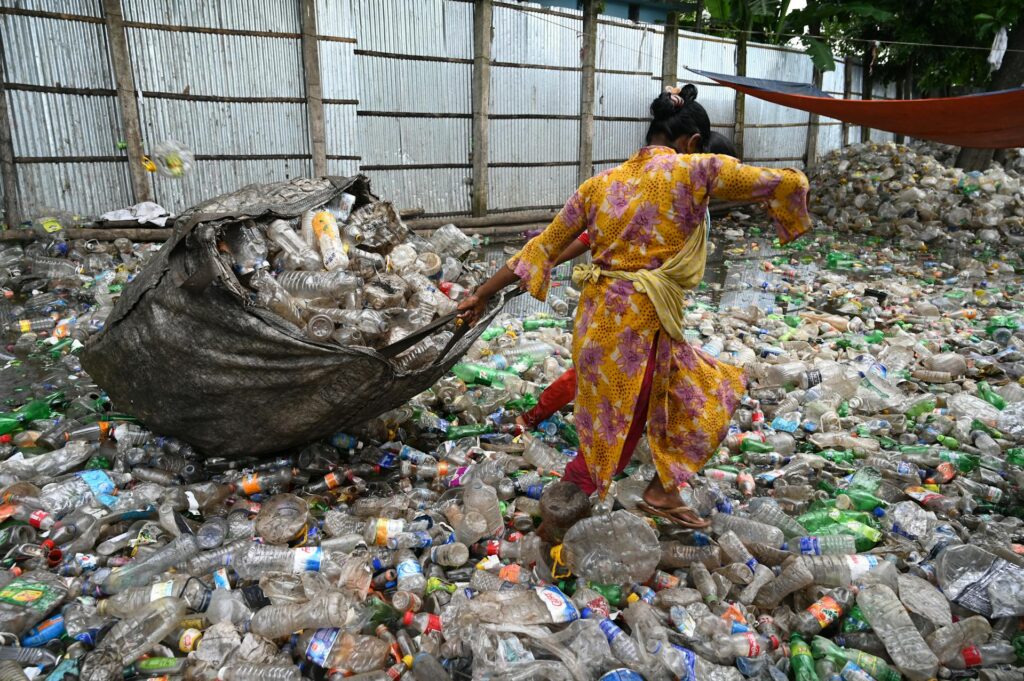
4. Bangladesh’s Bold Plastic Ban: A New Era of Sustainability
Dhaka, Bangladesh — Bangladesh’s new government has implemented bold measures to tackle plastic pollution by eliminating single-use plastics. As part of a larger environmental initiative, the government has introduced strict regulations banning the production, distribution, and use of single-use plastic products like bags, bottles, and packaging materials. The move comes in response to growing concerns over the environmental damage caused by plastic waste, which has choked rivers, harmed wildlife, and contributed to urban flooding.
The ban is part of a broader effort to transition toward sustainable materials, with the government promoting the use of alternatives such as jute and cloth. Environmental groups have praised the initiative but stress the importance of strong enforcement and public awareness campaigns to ensure its success. As the country grapples with the challenges of plastic pollution, Bangladesh hopes to set a precedent for other developing nations in tackling this global crisis.
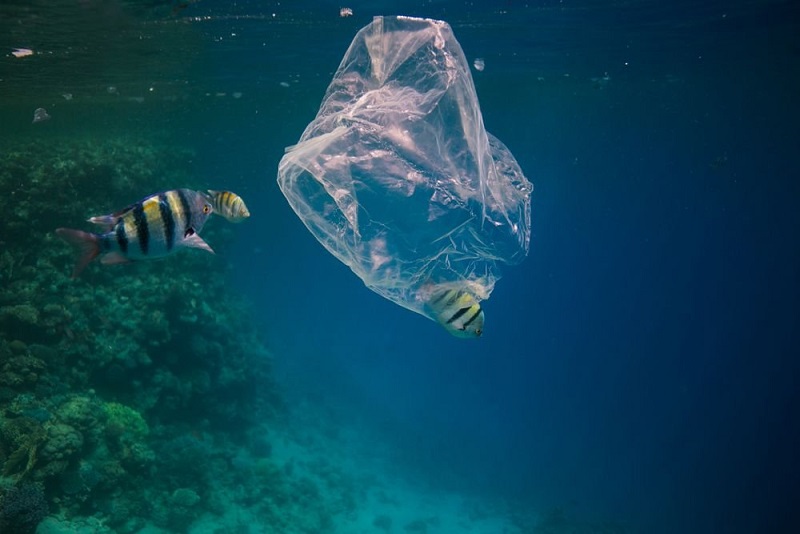
5. Plastic Bags Outlawed: Somalia’s Fight for Cleaner Future
Mogadishu, Somalia — Somalia has officially banned plastic bags in an effort to combat environmental pollution, becoming one of the latest countries to take action against plastic waste. The government’s decision aims to reduce the negative impacts of plastic on both terrestrial and marine ecosystems. Plastic bags have been a significant source of pollution in Somalia, clogging waterways, harming wildlife, and contributing to urban blight.
The ban is part of a larger national environmental policy, which includes raising public awareness about plastic waste and encouraging the use of biodegradable alternatives. Environmental activists in Somalia have praised the move, emphasizing its potential to protect marine life, including fish and sea turtles, that are often harmed by plastic pollution. While the ban is a critical step forward, enforcement and public education remain key challenges as the country embarks on this ambitious environmental endeavor.
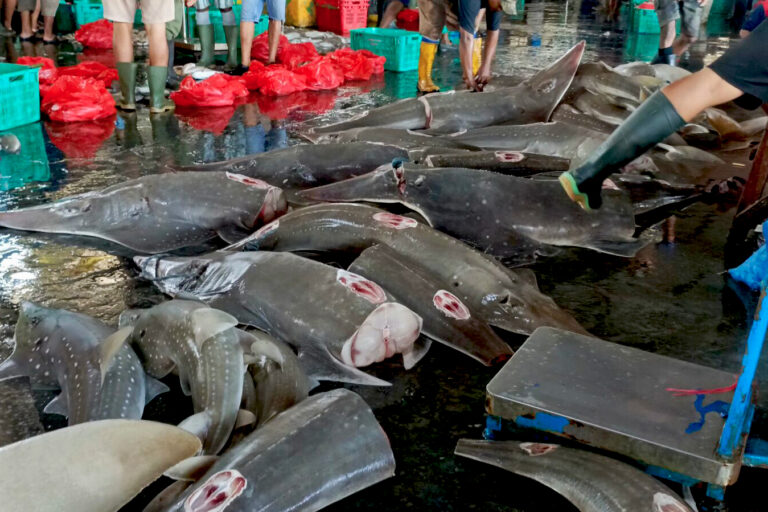
6. Indonesia’s Shark Crisis: Finners Feel the Pressure
Indonesia — As shark populations continue to plummet, Indonesia’s shark skinners face increasing pressure amid tightening regulations on shark fishing. The country, home to some of the world’s most diverse marine ecosystems, has long been a hub for the shark fin trade, but overfishing has pushed many shark species to the brink of extinction. Environmentalists are calling for stronger enforcement of existing protections and the introduction of new measures to preserve the country’s dwindling predator populations.
Shark skinners, who depend on the trade for their livelihoods, now face uncertainty as international and domestic pressure mounts to curb shark fishing. Scientists warn that without urgent action, the ecological balance of Indonesia’s reefs could be irreparably damaged. The government has introduced stricter quotas and is encouraging alternative livelihoods, but tensions remain high as the clock ticks on Indonesia’s shark populations.
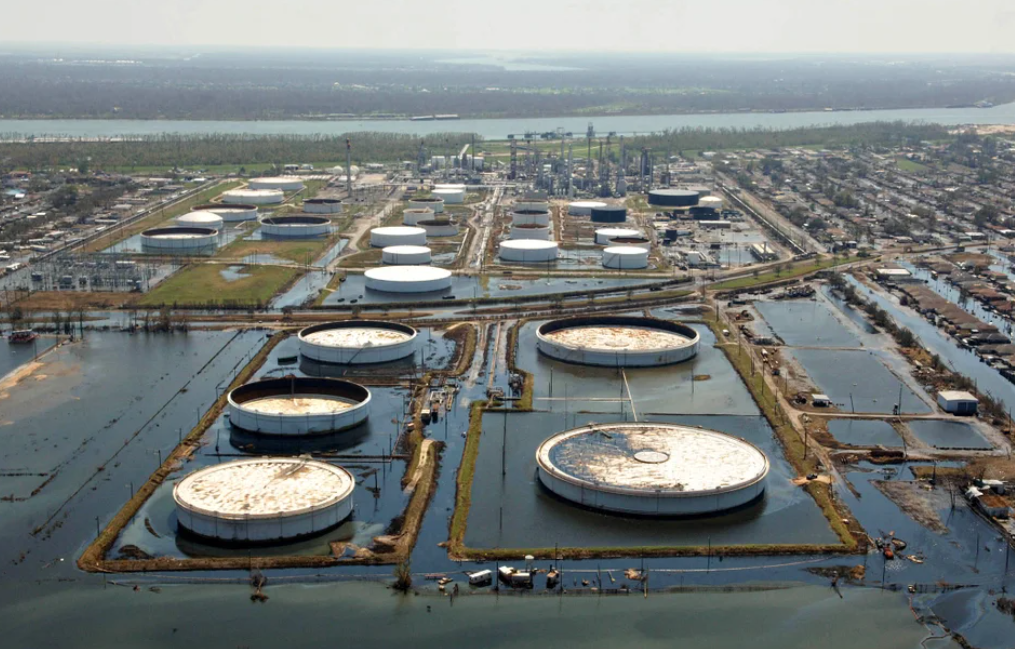
7. Floods Unleash Toxic Pollutants: The Silent Threat After Hurricane Helene
Florida, United States — As Hurricane Helene swept through the southeastern United States in September 2024, concerns grew over toxic chemicals released by industrial sites. Floodwaters inundated paper mills, fertilizer factories, and oil storage facilities, potentially releasing pollutants into the environment. These chemicals, once in the water, pose significant risks to human health and marine ecosystems. Industrial waste, including heavy metals and hazardous chemicals, often mixes with storm runoff, creating toxic plumes that can spread far beyond the initial flood zones.
This issue has become more prevalent as climate change intensifies the frequency and strength of storms. Environmental advocates argue that current regulations are insufficient to prevent such disasters. As hurricanes become more frequent, scientists are calling for stricter policies to regulate industrial pollution and protect vulnerable coastal communities from the hidden dangers of toxic chemical spills.

8. Can Environmental Subsidies Backfire? UCSC Experts Weigh In
Santa Cruz, California — A new policy essay from the University of California, Santa Cruz, warns that subsidies meant to promote environmental sustainability may have unintended negative consequences. The essay, published in Science, argues that while subsidies can accelerate the adoption of renewable energy technologies, they may also distort markets, perpetuate harmful economic practices, and weaken the overall effectiveness of environmental initiatives.
The authors, a group of international experts, recommend a cautious approach to subsidies, suggesting that they be time-limited and carefully designed to avoid reinforcing existing harmful subsidies, such as those promoting fossil fuel extraction or overfishing. They highlight the need for subsidies to have clear end dates and to be evaluated for their long-term environmental impact. As governments worldwide increasingly use subsidies to combat climate change, the authors stress the importance of ensuring that such policies do not inadvertently contribute to environmental degradation.
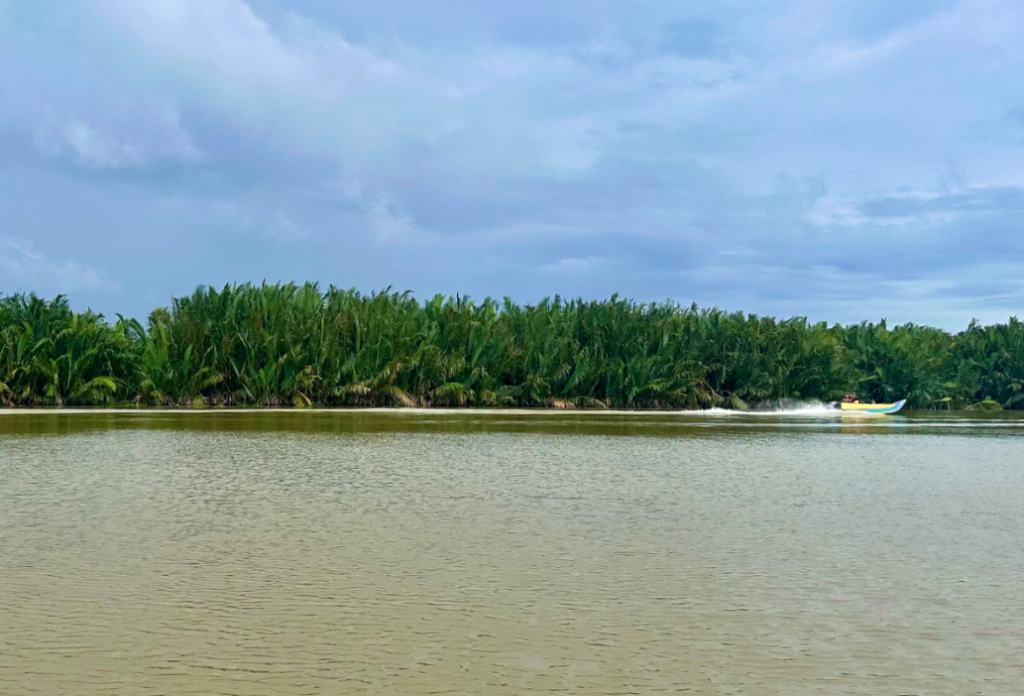
9. How Indonesia is Balancing Fisheries and Conservation
Indonesia — As part of the Global Biodiversity Framework, Indonesia is taking steps to align its marine protected areas (MPAs) with sustainable fisheries management. The country, home to some of the world’s richest marine ecosystems, faces the challenge of balancing conservation efforts with the livelihoods of millions who depend on fishing. The new framework emphasizes the integration of MPAs into broader fisheries management strategies, aiming to ensure that marine biodiversity is protected while also maintaining fish stocks for future generations.
Experts from the Environmental Defense Fund (EDF) are working with Indonesian authorities to implement science-based approaches that safeguard both the environment and local economies. The goal is to create a unified system where conservation and fisheries management work hand in hand. This initiative is part of a larger global effort to meet the goals of the Kunming-Montreal Global Biodiversity Framework and protect 30% of the planet’s ocean by 2030.

10. How AI is Revolutionizing Marine Biodiversity Mapping
India — Researchers are using artificial intelligence (AI) models to identify marine biodiversity hotspots, a breakthrough that could significantly enhance conservation efforts. The AI-driven models analyze vast amounts of oceanic data, including satellite imagery and marine biology studies, to pinpoint areas rich in biodiversity. These hotspots are crucial for the protection of marine ecosystems, as they often house species that are critical to maintaining ecological balance.
The AI model can quickly and accurately detect changes in marine life distribution, offering real-time insights for policymakers and conservationists. This technology could also be used to predict the impact of climate change on marine ecosystems, helping authorities take proactive measures to preserve vulnerable species. India is positioning itself at the forefront of marine conservation, integrating advanced technology with environmental stewardship to protect its rich marine life.

11. North Carolina Seeks Advisors for Fisheries Conservation
Raleigh, North Carolina — The North Carolina Marine Fisheries Commission is seeking advisors to serve on several advisory committees focused on fisheries management, habitat conservation, and sustainable fishing practices. The commission plays a crucial role in managing the state’s coastal fisheries, and the input from these committees will help shape regulations and policies that affect commercial and recreational fishing. Advisors will represent various stakeholders, including commercial fishermen, recreational anglers, scientists, and environmentalists, ensuring a diverse range of perspectives.
The committees will provide recommendations on issues such as fish stock assessments, habitat protection, and resource sustainability. The commission encourages individuals with experience and a vested interest in North Carolina’s marine resources to apply. This initiative is part of the state’s ongoing efforts to balance the economic and environmental importance of its fisheries, ensuring their long-term viability for future generations.
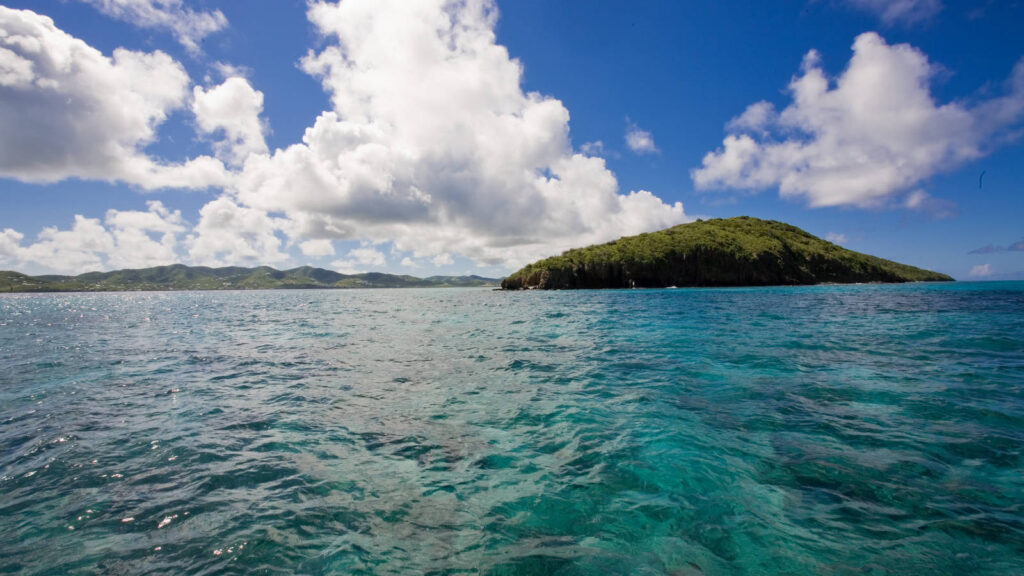
12. The Future of National Parks: IRA Funding Prepares for Climate Impact
Washington, D.C. — The Inflation Reduction Act (IRA) is set to provide critical funding to help U.S. national parks prepare for the impacts of climate change. National parks, which host some of the country’s most iconic landscapes and biodiversity, are increasingly threatened by rising temperatures, wildfires, droughts, and floods. The IRA allocates significant resources to improve park infrastructure, restore damaged ecosystems, and make the parks more resilient to extreme weather events.
Projects include upgrading outdated water systems, enhancing fire prevention strategies, and protecting vulnerable wildlife habitats. The funding also supports renewable energy initiatives, reducing the carbon footprint of park operations. Environmental advocates praise the act for its long-term vision, ensuring that national parks remain accessible and preserved for future generations. As climate change intensifies, the IRA’s support provides a lifeline for safeguarding America’s natural treasures.

13. UK Relinquishes Strategic Indo-Pacific Islands
London, United Kingdom — The United Kingdom has agreed to cede control of several strategic islands in the Indo-Pacific region, sparking concerns over potential security risks. The islands, once under British jurisdiction, have played a critical role in naval and military operations, making them a key asset in maintaining regional stability. The transfer of control, part of a broader geopolitical agreement, has raised eyebrows among defense experts who worry that the shift could open the door to increased influence from rival powers, particularly China.
The UK government maintains that the decision aligns with diplomatic priorities and long-term international partnerships. However, critics argue that relinquishing control of the islands may compromise both UK and allied security interests in a region that has become increasingly contested. As tensions continue to rise in the Indo-Pacific, this move could have significant implications for the global balance of power.
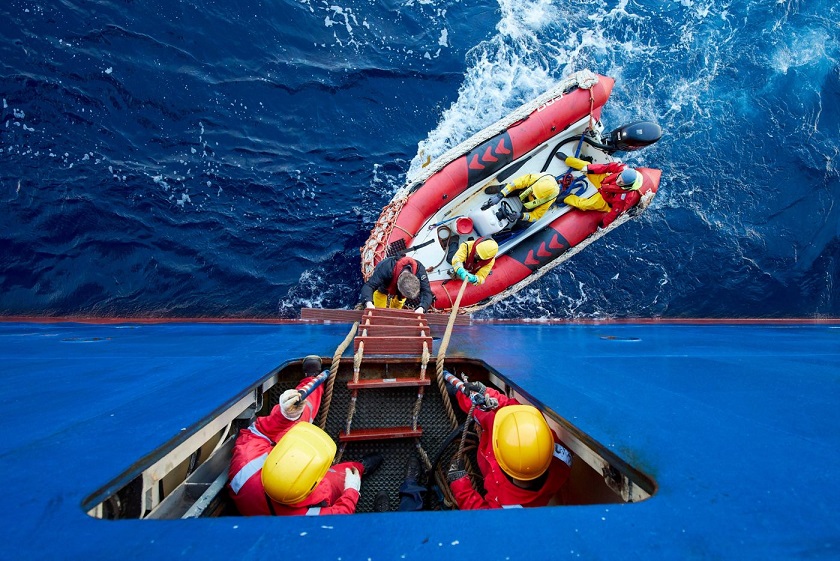
14. Ocean Hitchhikers: How Scientists Are Filling Marine Data Gaps
Global — In a bid to address gaps in oceanographic data, scientists are turning to an innovative solution: becoming “ocean hitchhikers.” By boarding commercial ships, research vessels, and even fishing boats, scientists are collecting valuable data from parts of the ocean that are often inaccessible to traditional research expeditions. These partnerships with the maritime industry allow researchers to install sensors, collect water samples, and monitor marine life during routine voyages.
This approach helps fill significant data gaps, particularly in remote areas of the ocean where research expeditions are costly and logistically challenging. The data gathered is crucial for understanding climate change, ocean health, and marine biodiversity. The hitchhiker model has already proven successful in gathering information on ocean currents, temperature shifts, and pollution levels. By collaborating with the maritime sector, scientists are unlocking new opportunities to advance marine science and conservation.
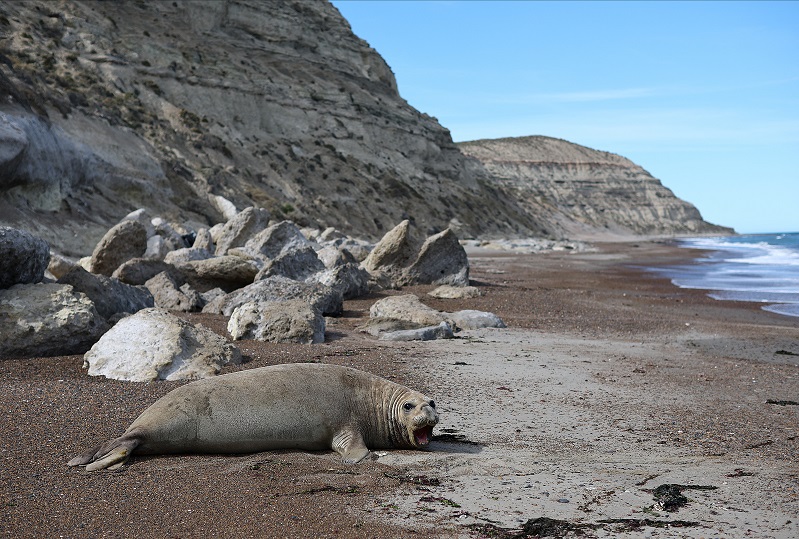
15. Fishing Waste Crisis in Patagonia: Wildlife at Risk
Valdes Peninsula, Argentina — The coastlines of Argentina’s Patagonia region, particularly around the Valdes Peninsula, are being choked by plastic and fishing waste, endangering marine wildlife and human health. The debris, which includes fishing nets, buoys, and crates, is polluting the beaches and threatening species such as sea lions, penguins, and whales. Local environmental groups warn that the waste is also breaking down into microplastics, which are ingested by marine animals and can eventually enter the human food chain.
The Valdes Peninsula, a UNESCO World Heritage site, is renowned for its biodiversity, but the growing waste problem poses a serious threat to the region’s ecosystem. Scientists and environmental advocates are calling for stronger regulations on waste disposal from the fishing industry and increased cleanup efforts to protect both wildlife and the local communities that depend on the sea for their livelihoods.

16. U.S. and Gabon Strengthen Ties with Focus on Environment and Security
Libreville, Gabon — The United States has reaffirmed its long-standing partnership with Gabon, focusing on enhancing cooperation in environmental protection, economic development, and regional security. During a visit by Gabon’s Transition President, Brice Clotaire Oligui Nguema, both nations outlined a series of initiatives to strengthen their collaboration. Among these are joint efforts to support Gabon’s democratic transition through the African Democratic and Political Transitions (ADAPT) initiative and the convening of the Libreville Local Democracy Forum.
The U.S. also committed to expanding economic opportunities in Gabon by supporting African women entrepreneurs, securing critical mineral supply chains, and promoting marine conservation efforts. Additionally, the U.S. will provide technical support to combat illegal logging and expand maritime security capabilities. Both countries emphasize the importance of environmental sustainability and the protection of Gabon’s unique ecosystems, including African forest elephants and national parks.
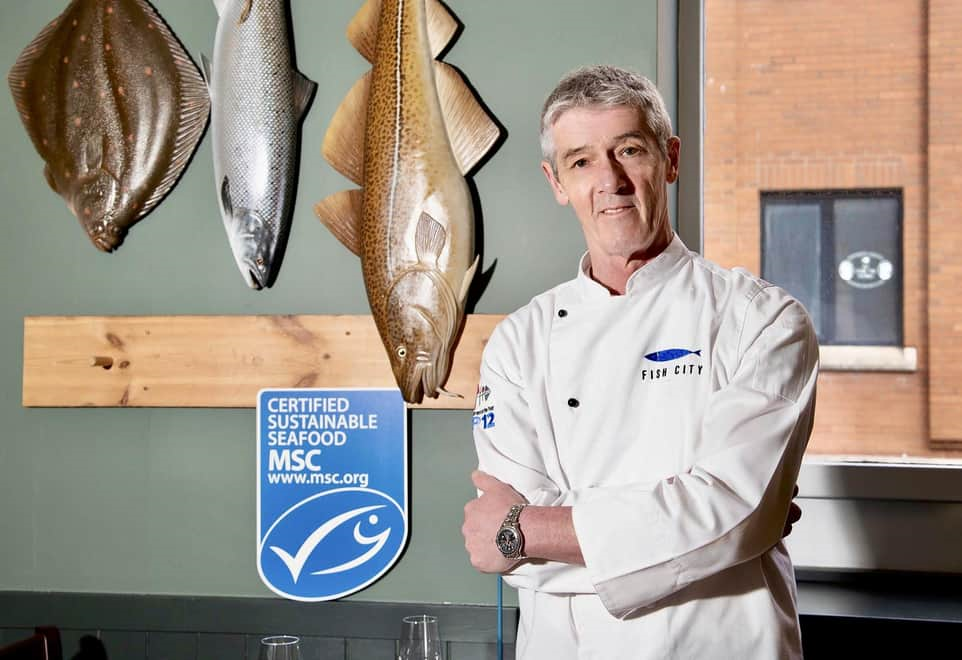
17. Fish City: Belfast’s Eco-Conscious Eatery Sets Sustainability Standards
Belfast, Northern Ireland — Fish City, an award-winning restaurant in Belfast, has committed to sustainable fishing practices by becoming the first business in Northern Ireland to sign the Sustainable Fish Cities pledge. This environmental initiative, led by Ulster Wildlife and the Belfast Food Network, encourages restaurants to source seafood responsibly and ensure that the fish they serve come from sustainable fisheries. John Lavery, owner of Fish City, emphasizes the growing consumer demand for eco-friendly dining options and the importance of protecting marine resources for future generations.
As part of their commitment, Fish City has audited their entire seafood supply chain and now exclusively serves Marine Stewardship Council (MSC) certified fish, including cod, haddock, and hake. Lavery hopes other restaurants will follow suit to protect vulnerable species and support sustainable fishing. The pledge highlights Fish City’s dedication to protecting the environment while delivering high-quality dining experiences.
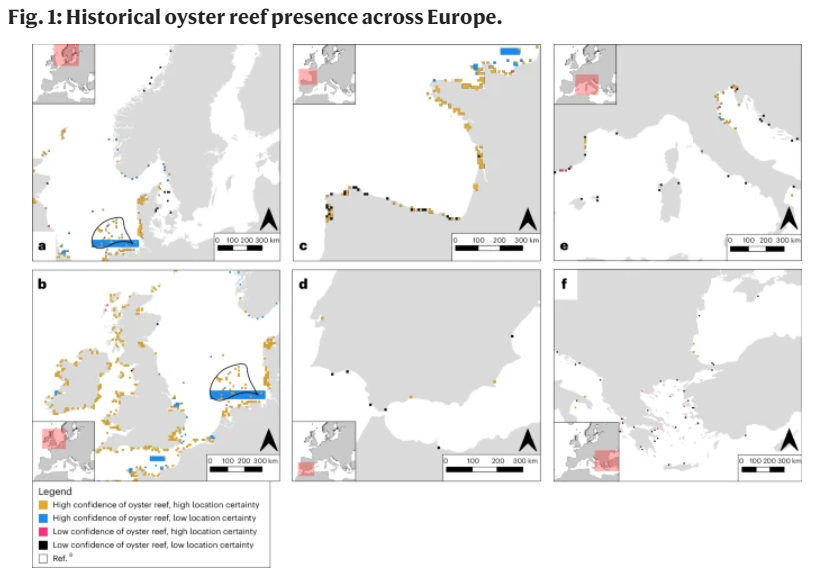
18. Environmental Subsidies: Are They Doing More Harm Than Good?
A new study published in Nature Sustainability reveals that subsidies aimed at supporting environmental sustainability can sometimes have unintended consequences that weaken their effectiveness. The researchers, from various institutions, argue that while subsidies are essential in driving renewable energy adoption and promoting sustainability, they can also distort markets and perpetuate environmentally harmful practices if not carefully designed. For example, subsidies for electric vehicles (EVs) can inadvertently increase overall vehicle usage, leading to more emissions.
The study emphasizes the need for a more cautious approach, advocating that subsidies should be time-limited and regularly reassessed to ensure they are truly benefiting the environment. Furthermore, the researchers highlight that removing long-standing subsidies for fossil fuels and overfishing could yield greater positive environmental outcomes. The study calls for better coordination between policymakers, scientists, and economists to design subsidies that foster both economic growth and environmental protection.
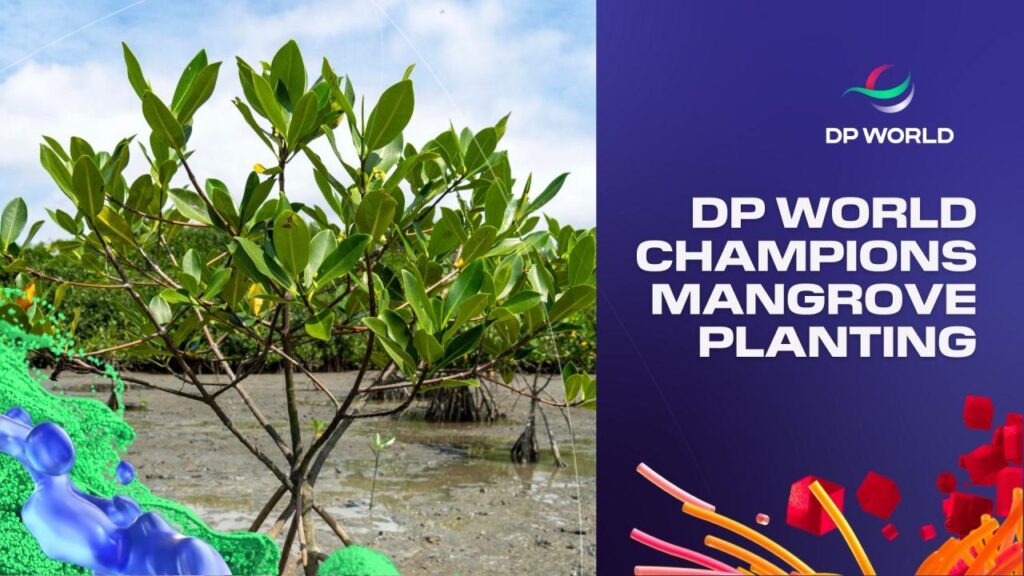
19. Mangroves to the Rescue: DP World’s Global Conservation Project
Dubai Ports (DP) World is leading a global initiative to protect and restore mangrove ecosystems through its “Our World, Our Future” sustainability strategy. The Mangrove Forest Project, launched in areas like Puná Island in Ecuador, aims to combat coastal erosion, boost biodiversity, and mitigate the effects of climate change by planting thousands of mangrove trees. Mangroves play a crucial role in stabilizing coastlines, serving as natural carbon sinks, and providing habitats for various marine species.
DP World’s efforts align with the United Nations Sustainable Development Goals (SDGs), specifically targeting climate action (SDG 13) and life below water (SDG 14). The company has also partnered with local communities, providing economic support through eco-friendly initiatives such as artisanal fishing and tourism. As a result, the project has helped protect over 105 hectares of mangroves, with plans to expand these efforts in the coming years.
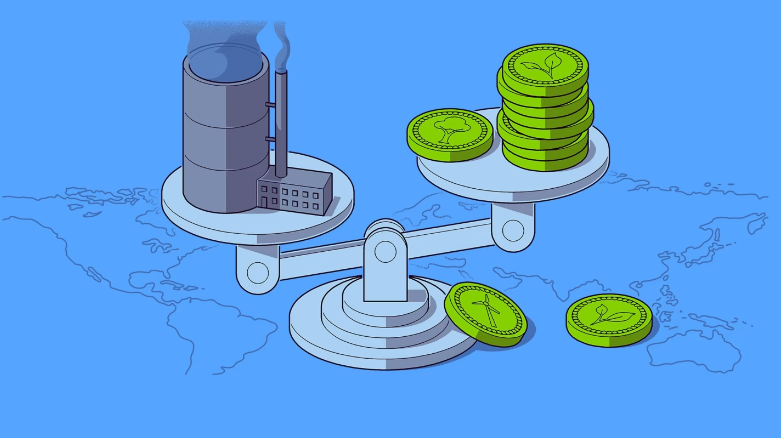
20. Can Carbon Markets Save the Planet? New Report Weighs In
A new report highlights the significant role of carbon markets in achieving global climate goals, as governments and businesses increasingly rely on carbon pricing to drive emissions reductions. However, experts warn that existing carbon markets are underutilized and fragmented, which could hinder their potential to meet the targets set by the Paris Agreement. The report emphasizes the need for better coordination between international carbon trading systems to ensure their effectiveness and scalability.
It also calls for stricter regulations to prevent market manipulation and ensure the integrity of carbon credits. Governments are urged to integrate carbon pricing more deeply into their climate policies, while businesses are encouraged to engage in transparent and verifiable carbon offset projects. The future success of carbon markets, the report concludes, will depend on the harmonization of policies and the strengthening of global carbon pricing mechanisms.
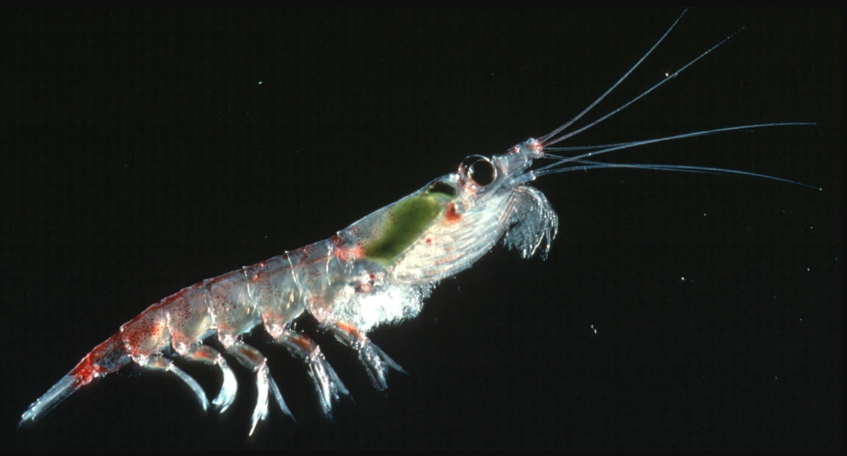
21. The $46 Billion Secret Hidden in Antarctic Krill Poop
Antarctic krill may hold the key to significant carbon storage, according to a new study that values the role of krill in carbon sequestration at up to $46 billion. Krill, small marine crustaceans, play a critical role in the Antarctic ecosystem by consuming phytoplankton, which absorbs carbon from the atmosphere. When krill excrete waste, the carbon-rich material sinks to the ocean floor, effectively removing carbon from the atmosphere and storing it for centuries.
This process, similar to the carbon storage functions of mangroves and seagrasses, has been dubbed “blue carbon.” However, krill populations are under threat from overfishing and climate change, jeopardizing this natural carbon sink. Scientists are calling for stronger protections for krill, arguing that preserving these tiny creatures could be a valuable tool in the fight against climate change and provide massive economic benefits through their role in carbon storage.

22. Scientists Discover Hidden Cold-Water Coral Garden off Newfoundland
Newfoundland, Canada — Scientists have discovered a massive cold-water soft coral garden off the coast of Newfoundland, a remarkable find that highlights the biodiversity of the deep sea. The coral garden, located in previously unexplored areas, covers a vast area and hosts a wide range of marine life, including fish, invertebrates, and other coral species. Cold-water coral gardens are typically found in the deep sea and play an essential role in marine ecosystems by providing habitat and protection for various species.
The discovery is particularly significant as it comes at a time when deep-sea ecosystems are under threat from climate change, ocean acidification, and human activities like bottom trawling. Researchers are calling for the coral garden to be protected to ensure its long-term survival and to preserve the marine biodiversity it supports. This discovery underscores the importance of continued exploration and conservation of deep-sea habitats.
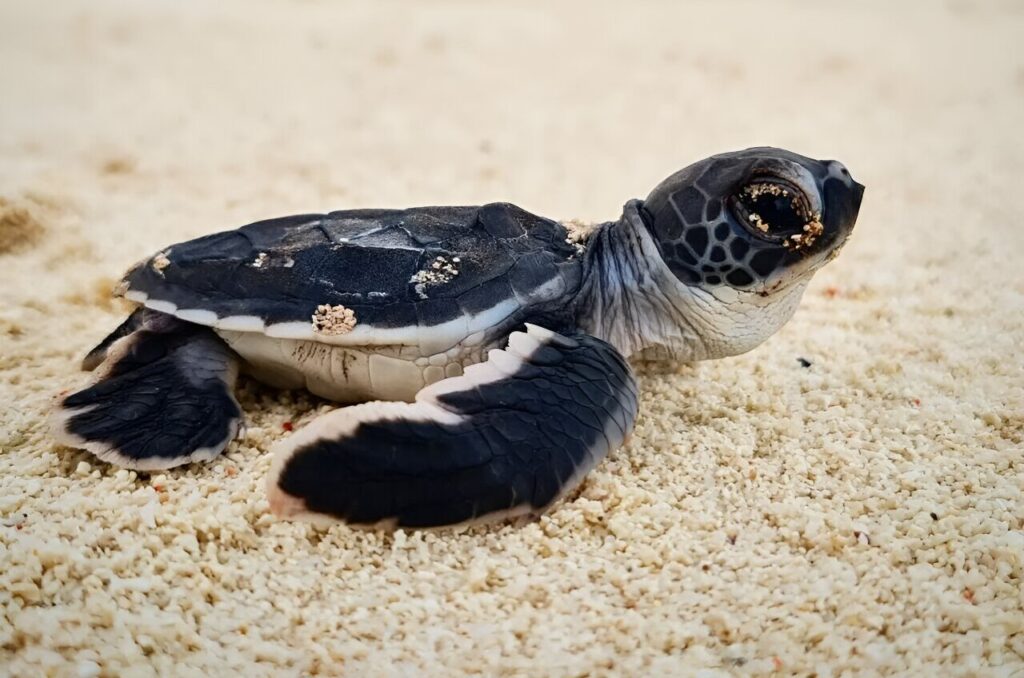
23. Scientists Spying on Baby Turtles with Backbacks
Scientists have uncovered new insights into how green turtles manage to emerge from their sandy nests after hatching. Using miniature accelerometers, researchers tracked the movements of hatchling turtles as they climbed toward the surface. Contrary to previous beliefs that the turtles “dig” their way out, the study reveals that they “swim” upward using a repetitive rocking motion. This discovery sheds light on an otherwise poorly understood phase of a turtle’s life, which occurs entirely beneath the sand.
The research, published in Proceedings B, highlights how this novel technique could provide valuable data for improving conservation strategies. Understanding this early life stage is crucial, as hatchlings face numerous threats, including habitat destruction and climate change. The findings offer a window into the hidden life of turtles and could lead to more effective measures for protecting vulnerable turtle populations around the world.




